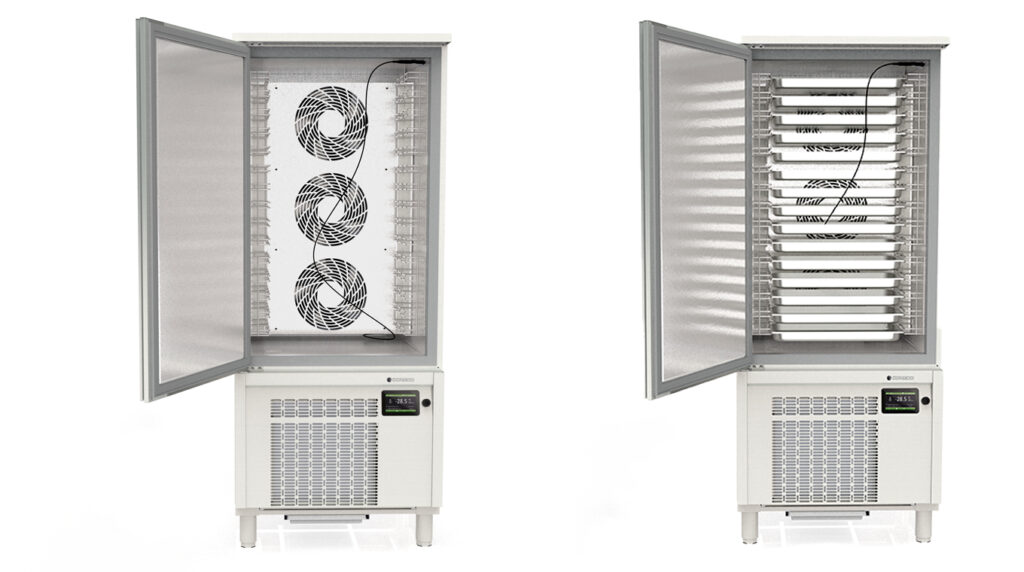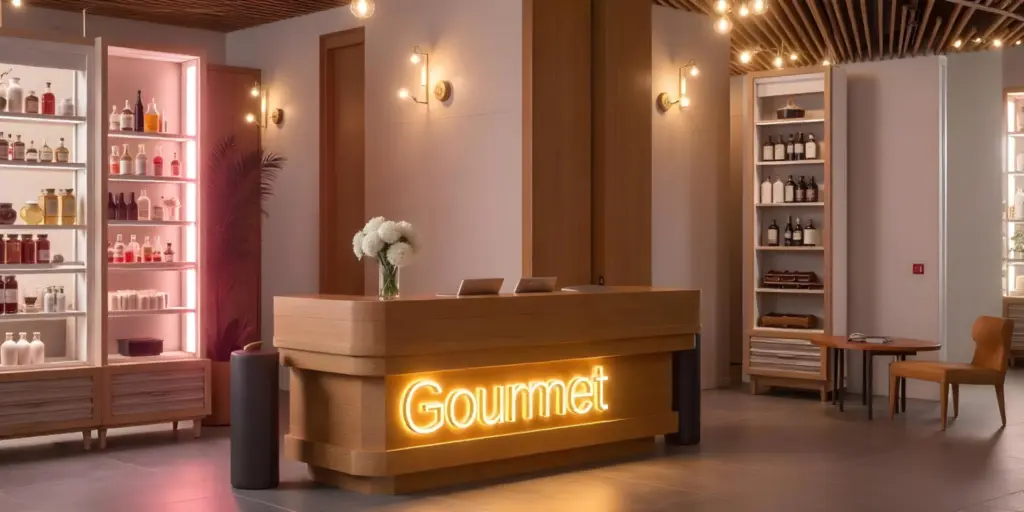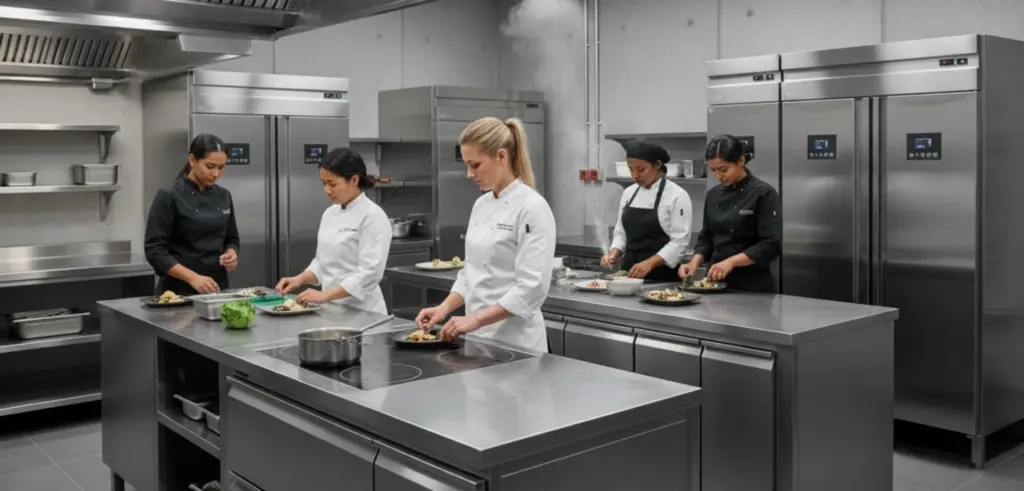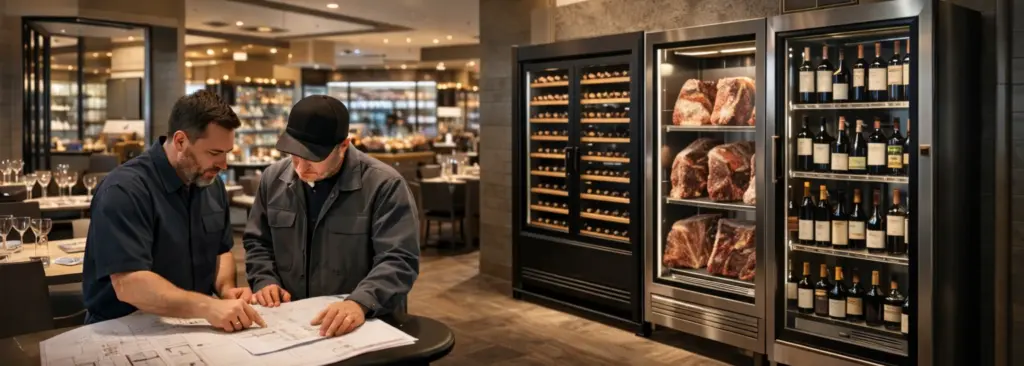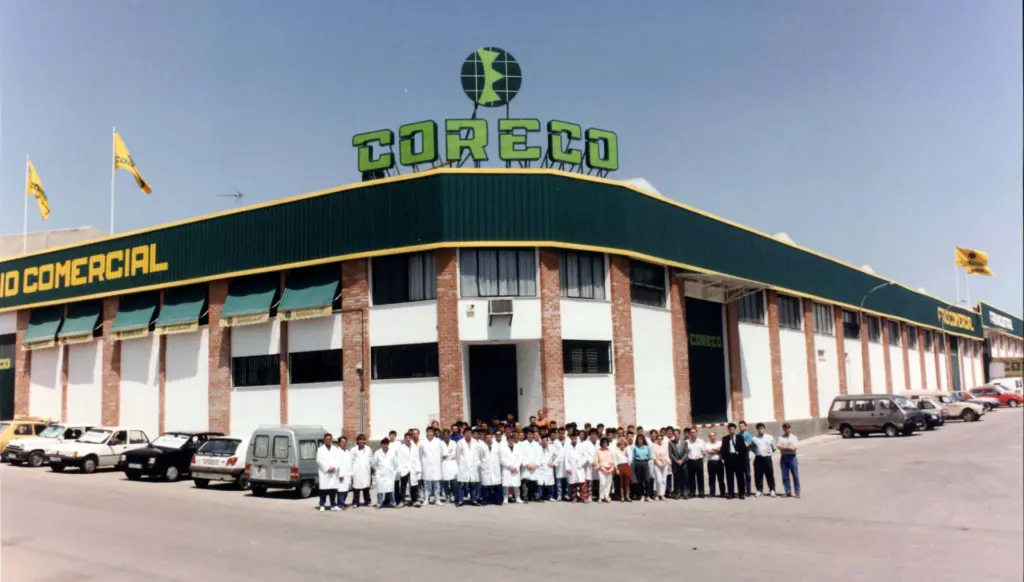The industrial refrigeration industry is undergoing a key transformation. With the entry into force of the F-Gas 2024 regulation, companies must adapt to new environmental standards that not only seek to reduce greenhouse gas emissions, but also to promote sustainability and energy efficiency. In this article, we will try to take a closer look at how this transition is impacting the sector and how Coreco is positioning itself as a benchmark in the implementation of innovative and responsible solutions.
1. Changes to the F-Gas 2024 regulation by 2025 and their impact on the sector
2. The reasons behind the change: Sustainability and energy efficiency
The main objective of the F-Gas regulation is to reduce greenhouse gas emissions by promoting the use of low-GWP refrigerants. The hydrocarbons R290 and R600a are viable alternatives with an environmental advantage as they have a considerably lower GWP. low (3) compared to traditional refrigerants, such as HFCs (values well above 1400). This is in line with the EU's commitment to reduce its carbon footprint and promote sustainability in industry.
For example, energy efficiency is key to the future of refrigeration, especially in applications such as Grab & Go spaces. In this blog, we have an article on how Coreco's high-performance equipment is designed to meet the expectations of sustainability and functionality in high turnover environments. Read the full article here
For the full text of the F-Gas regulation, please consult the FEDA websitewhich details all the provisions and deadlines of the regulation.
3. Major changes in the refrigeration industry: What the F-Gas regulation entails for 2025
The F-Gas 2024 regulation introduces several key provisions that directly impact manufacturers, distributors and technicians in the refrigeration sector:
- Reduction of quotasThe regulation limits the quantities of F-gases that can be placed on the market in Europe, which will lead to a gradual decrease in the use of high-GWP refrigerants in the market.
- Specific prohibitions: From 12 March 2025, the export of stationary refrigeration and air-conditioning equipment and stationary heat pumps containing fluorinated greenhouse gases with a GWP equal to or greater than 1000 shall be prohibited.
- Focus on natural gasesThe use of hydrocarbons (such as R290 and R600a) and CO₂ in refrigeration equipment is encouraged, allowing the industry to adapt to the sustainability standards required by the European Union.
For a detailed analysis of these changes and their implications, the website FEGECA provides an in-depth look at the impact of the F-Gas 2024 regulation on the refrigeration industry by 2025.
4. Coreco in the European working group for the transition to green refrigerants
Coreco relies on the experience and leadership of its Product Manager, Manuel Mellado, who represents the company in the Spanish Federation of Associations of Manufacturers of Machinery for the Hospitality, Catering and Allied Industries (FELAC) committees and working groups at national and European level.
This participation is key for Coreco and its industry, as FELAC occupies a strategic position in various national and international forums dealing with environmental standards and regulations in the sector.
- UNE Technical Committee for Standardisation "CTN 200/Subcommittee 111".focused on the environmental standardisation of electrical and electronic products.
- CEOE's Circular Economy, Industry and Ecological Transition Commissions.
- Circular Hospitality Guide developed by INEDIT with FELAC.
- CEOE Sub-Working Group on Fluorinated Gasesaddressing the transition to refrigerants with low global warming potential.
- Working Group WG2 EFCEM (European Hospitality Equipment Manufacturers Federation) for Fgas 2024 and energy labelling.
- Orgalim Green Transition WG representing EFCEM.
- EFCEM WG1 BIM and Connectivity Working Group
Coreco's involvement in these forums reinforces its commitment to sustainability and innovation in the industrial refrigeration sector, ensuring that its products not only comply with the strictest regulations, but also contribute to a greener and more efficient future for the hospitality industry.
5. Training and capacity building on the new regulations
The transition to low-GWP refrigerants requires not only changes in equipment design, but also solid training for installers and technicians. At Coreco, ongoing training is a priority, and the company offers collaboration to ensure that technical personnel are prepared to handle R290 and R600a refrigerants with the utmost safety and efficiency.
Coreco also works with industry associations to provide training and advice to installers and technicians, facilitating an orderly transition to these new refrigerants while maintaining high standards of quality and safety.
6. Challenges in adapting to the F-Gas regulation 2024 for the year 2025
The transition to sustainable refrigerants has posed significant challenges for both manufacturers and end consumers. Some of the main challenges include:
- Transition costsManufacturers must make significant investments in research and development, which can have an impact on product prices.
- Redesign of equipmentR290 and R600a, which have different technical characteristics than HFCs, need to be adapted by industry to ensure efficient and safe operation.
- International competitionEuropean regulations are among the most restrictive in the world. European manufacturers, such as Coreco, must adapt to these regulations while competing with companies in other regions where regulations are less stringent.
7. Market benefits of R290 and R600a refrigerants
The adoption of refrigerants such as R290 and R600a not only responds to environmental regulations, but also offers important benefits for consumers and industry in general:
- Increased energy efficiencyThese gases allow refrigeration equipment to operate with lower energy consumption, thus reducing operating costs and environmental impact.
- Reduced environmental impactR290 and R600a refrigerants have a significantly low GWP, making them sustainable alternatives and in line with greenhouse gas emission reduction targets.
- Better conservationThese refrigerants offer increased thermal stability ensuring optimum performance in the preservation of food and perishable products.
8. Conclusions: Sustainability as the new standard in industrial refrigeration.
The industrial refrigeration industry is in a phase of fundamental transformation, in which sustainability and energy efficiency have become essential pillars.
As the market adopts refrigeration solutions based on natural gases such as R290 and R600a, the Horeca sector and food manufacturers will be able to benefit from equipment that not only complies with current regulations, but also provides long-term value.
Companies like Coreco are leading this transition by offering innovative and sustainable products that meet the F-Gas 2024 standard and ensure safe and efficient operation towards the standard in 2025.
The implementation of this regulation represents not only a challenge, but also an opportunity for the refrigeration industry to position itself at the forefront of sustainability.
Sustainability is a key pillar, for example, in the food and industrial refrigeration industry. In our article on gourmet market trends in 2025We look at how these demands are transforming the industry, from responsible consumption to the use of advanced refrigeration technologies. Read more here.
